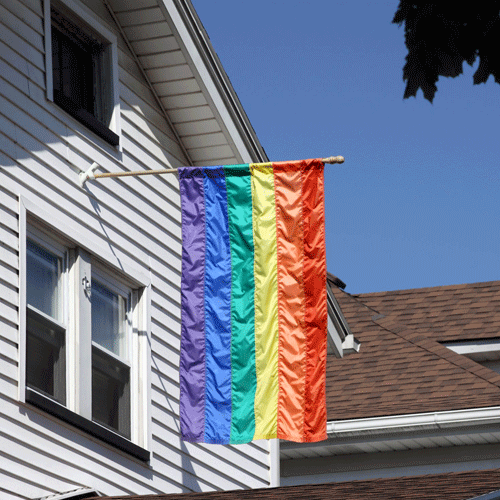Menu
Hot-Topics
February 5, 2026 | SCOTUS Decision in Bowe v. United States Is First of the 2026 Term
Category: Uncategorized

Citizenship Rule Favoring One Gender Is Unconstitutional
In Sessions v. Morales-Santana, 582 U. S. ____ (2017), the U.S. Supreme Court ruled that a citizenship rule favoring unwed mothers over unwed fathers violated the U.S. Constitution. Not surprisingly, Justice Ruth Bader Ginsburg, a long-time champion ...

Justice Gorsuch Authors First Opinion in FDCPA Case
In Henson v. Santander Consumer USA, Inc., 582 U. S. ____ (2017), the U.S. Supreme Court unanimously held that a company may collect debts that it purchased for its own account without triggering the statutory definition of a "debt collector" under t...

New Supreme Court Term Kicks Off with Oral Arguments in Five Cases
The U.S. Supreme Court’s new term gets into full swing next week. To kick off the new Supreme Court term, the justices will hear oral arguments in five cases, along with issuing orders and a meeting to consider additional cert petitions. ...

The Federal Antitrust Acts
The Federal Antitrust Acts In 1890, Congress enacted the country’s first antitrust law, the Sherman Antitrust Act. In 1914, Congress passed the Federal Trade Commission Act and the Clayton Act to further police anticompetitive business conduct. To...

Supreme Court Adopts Rule for Diversity Jurisdiction & Business Trusts
On March 7, 2016, the U.S. Supreme Court held that for purposes of diversity jurisdiction, the citizenship of an unincorporated entity, such as a real estate investment trust, depends on the citizenship of all of its members. The decision in Americol...

The Affordable Care Act Tax Credit Subsidies Are Constitutional
In King v. Burwell, a divided Court ruled that all tax subsidies granted under the healthcare law are legal. Had the Court ruled otherwise, the sweeping healthcare reform law may have been in jeopardy. The Facts of the Case The latest ACA ...

Same-Sex Marriage Affirmed in Obergefell v. Hodges
By a vote of 5-4 in Obergefell v. Hodges, the United States Supreme Court held that the Fourteenth Amendment requires a State to license a marriage between two people of the same sex and to recognize a marriage between two people of the same sex when...

Separation of Powers Decides Jerusalem Passport Dispute
In Zivotofsky v. Kerry, the U.S. Supreme Court held that the power to recognize foreign states and governments is exclusive to the President. The 6-3 decision, which rested almost exclusively on the Constitution’s separation of powers, highlights t...

Glossip v. Gross: Supreme Court Grants Rare Death Penalty Case
Later this term, U.S. Supreme Court will consider its first death penalty case since 2007. The issue in Glossip v. Gross is whether a new sedative used in lethal injections violates the Eighth Amendment to the U.S. Constitution. The drug at use, in ...

Raisins Are Property Too
In Horne v. Department of Agriculture, the property at issue is raisins. The U.S. Supreme Court recently agreed to consider whether the government’s Fifth Amendment duty to provide just compensation when it “physically takes possession of an inte...
Previous Articles
SCOTUS Rules State Can’t Immunize Parties from Federal Civil Liability
by DONALD SCARINCI on January 29, 2026
In John Doe v. Dynamic Physical Therapy, LLC, 607 U.S. ____ (2025) the U.S. Supreme Court held that...
Supreme Court to Address Racial Discrimination in Jury Selection
by DONALD SCARINCI onWhile the U.S. Supreme Court has concluded oral arguments for the year, it continues to add cases t...
Supreme Court Halts Deployment of National Guard to Chicago
by DONALD SCARINCI on
In Trump v. Illinois, 607 U.S. ____ (2025), the U.S. Supreme Court refused to stay a district court...
The Amendments
-
Amendment1
- Establishment ClauseFree Exercise Clause
- Freedom of Speech
- Freedoms of Press
- Freedom of Assembly, and Petitition
-
Amendment2
- The Right to Bear Arms
-
Amendment4
- Unreasonable Searches and Seizures
-
Amendment5
- Due Process
- Eminent Domain
- Rights of Criminal Defendants
Preamble to the Bill of Rights
Congress of the United States begun and held at the City of New-York, on Wednesday the fourth of March, one thousand seven hundred and eighty nine.
THE Conventions of a number of the States, having at the time of their adopting the Constitution, expressed a desire, in order to prevent misconstruction or abuse of its powers, that further declaratory and restrictive clauses should be added: And as extending the ground of public confidence in the Government, will best ensure the beneficent ends of its institution.
Awards





